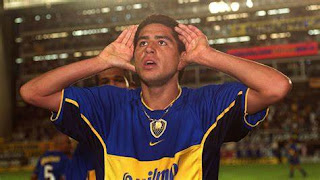The Year 2001 in Argentine Soccer: Between Glory and Crisis
The Year 2001 in Argentine Soccer: Between Glory and Crisis
The year 2001 was one of the most significant in the history of Argentine football. In the midst of a convulsive social and economic environment, the king of sports in Argentina experienced moments of intense emotion, great triumphs and profound challenges. This blog covers the events and contexts that made 2001 an unforgettable year for Argentine football.
The socioeconomic context
Argentina in 2001 was immersed in a deep economic and social crisis. The recession, unemployment and the devaluation of the peso created an environment of uncertainty and despair. This situation also affected football, where clubs faced significant financial problems, including salary arrears and difficulties retaining their most outstanding players. The passion for football, however, remained intact, offering respite and a source of pride in difficult times.
Local Tournaments: Closing and Opening
The Argentine football calendar is divided into two short tournaments: the Clausura Tournament, which is played in the first half of the year, and the Apertura Tournament, in the second half.
**Torneo Clausura 2001: San Lorenzo Champion**
San Lorenzo de Almagro, under the direction of Chilean Manuel Pellegrini, had an outstanding campaign in the 2001 Clausura. With figures such as Leandro Romagnoli and Bernardo Romeo, the team displayed offensive and effective football, winning the title after a decade without major conquests. San Lorenzo was crowned champion with a combination of youthful talent and experience, beating rivals such as River Plate and Boca Juniors.
**Torneo Apertura 2001: Racing Club Campeón**
The 2001 Apertura Tournament was a historic moment for Racing Club de Avellaneda. After 35 years without league titles, Racing, coached by Reinaldo Merlo, broke the streak and became champions, unleashing an unprecedented euphoria among its fans. Players such as Diego Milito and Gustavo Campagnuolo were key in a campaign marked by dedication and determination. Racing's title was not only a sporting achievement, but also a symbol of hope and resilience in difficult times.
The Copa Libertadores
Argentine clubs also had an outstanding participation in the 2001 Copa Libertadores. Boca Juniors, the defending champion, reached the final again, facing Mexico's Cruz Azul. After a thrilling series that ended in an aggregate draw, Boca was crowned champion in a dramatic penalty shootout. This triumph reaffirmed Boca's position as one of the most powerful teams on the continent under the technical direction of Carlos Bianchi.
Impact of the Economic Crisis
The economic crisis left its mark on all aspects of Argentine football. Several big clubs, such as River Plate and Independiente, faced serious financial difficulties. Back wages and the sale of young talent to foreign leagues became common, affecting the level of competition and the stability of teams. Despite these challenges, the passion and love for football continued to be a refuge for millions of Argentines.
Milestones and Outstanding Figures
The year 2001 saw the emergence and consolidation of several players who would later become stars worldwide. Among them, Javier Saviola, who shone at River Plate before his transfer to Barcelona, and Juan Román Riquelme, who played a crucial role at Boca Juniors. These players not only stood out for their individual talent, but also for their ability to lead and make a difference in crucial moments.
Conclusion
The year 2001 in Argentine football was a reflection of the resilience and passion of a country that, despite facing serious difficulties, found in sport a reason to celebrate and stay united. The triumphs of San Lorenzo and Racing Club, along with the historic victory of Boca Juniors in the Copa Libertadores, are remembered as moments of glory in a year marked by adversity. The history of Argentine football in 2001 is proof that, even in the darkest of times, the spirit and passion for the game can offer light and hope.





Comments
Post a Comment